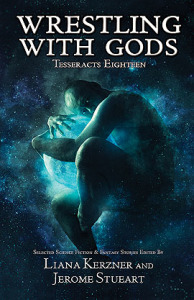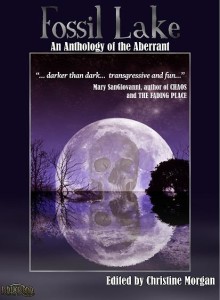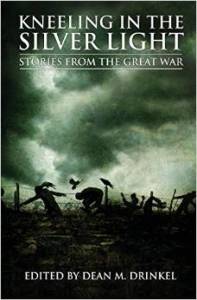(Trigger warning for discussion of sexual abuse and rape in the following article.)
A friend of mine is a big fan of romance novels. These aren’t my usual choice of reading material, but I accepted her offer to try a few. I wanted to understand my friend’s interest, to figure out why these books had so much appeal, and, I’ll admit, I was curious.
The first three books entertained me easily enough. I could see the selling points of these modern-day Cinderella stories. Usually, a hardworking but not particularly well-off young woman would catch the eye of a rich single bachelor. He’d sweep her off her feet into a whirlwind of luxury and excitement (I laugh at the lavish descriptions of houses and hotel rooms, gowns, and meals; the upper-class lifestyle is as much a selling point as the man himself) and there would be hot sex. Then a misunderstanding would split the couple apart, until the end when true love conquered all.
Then came the fourth book.
In this book, a woman agreed to a prearranged marriage. Bizarre wills, marrying for desperately needed money and familial obligations are common plot devices to force contact between heros and heroines who initially don’t like each other beyond their sexual attraction to one another, so I thought nothing of it. Until the wedding night scene.
Usually, this scene is one of seduction, in which the woman indulges her secret sexual attraction. In this case, the wedding night read to me as a sexual assault. I couldn’t believe what I was reading. The heroine didn’t want the encounter, didn’t enjoy the encounter, and was deeply upset afterwards. Shocked, I flipped to the end of the book. She was going to get the creep thrown in jail and marry the butler, right?
Nope. At the end of the book, the heroine was head over heels in love with her rapist.
This wasn’t an old book, either, reflecting the social values of 1900…or even 1999. It had been written the same year I’d read it.
Now, a caveat. I don’t have a problem with dark fiction or dark themes in stories. I know several real-life abuse survivors who’ve told me they like to read and/or write fiction with themes of assault because fiction gives them a safe arena in which to explore, understand, and come to terms with their emotions. Fiction is a place where no real people are harmed in the creation of imaginary stories, and people can enjoy certain acts occurring in fiction–including war, murder, natural disasters, etc–that they would never want to have happen in real life.
What bothered me was not that there was rape in a story, but that there was rape between the lead characters of a story that had been presented to me, the reader, as a sweeping romance. Following the happily-ever-after convention of these novels, I was expected to believe that in the second half of the book, the heroine would forgive and fall in love with her rapist, who would love her in return.
I don’t usually stop reading books halfway through, but this one, I did. I did not want the writer to convince me to believe in this “romance”. My idea of a happy ending, at that point, was to see the “hero” locked up behind bars. A rape scene, and a woman falling in love with her rapist, were not what I had signed up for when I picked up what I thought would be a light and fluffy love story with a side of sex.
On the other side, I’ve read a murder mystery story that also broadsided me, in a good way. I’m not going to identify the book, for fear of spoilers, but it is the first of a trilogy.
The premise is that the hero, a young man whose nature puts him at a high risk for becoming a serial killer, finds that murders are being committed in his neighborhood. He’s both fascinated and repelled that someone is doing the very thing he’s struggling so hard not to do. He both appreciates the killer’s work, and understands that his family and schoolmates are at risk, and that is a Bad Thing.
Halfway through the novel, it’s revealed that the killer is a supernatural being.
Up until that point, the reader had expected to enjoy a book in the vein of “Dexter”…a serial killer murder mystery set in the real world. At the moment of revelation, though, the reader realizes s/he is reading an urban fantasy or magic realism novel instead–a story set in a world where a certain form of supernatural being truly exists.
As a speculative fiction reader and writer, I was all on board for supernatural beings! The realistic start to the book made the supernatural villain seem more real and more frightening. The shock I felt paralleled the main character’s surprise when he discovered that creatures he’d thought mythical were actually real. The supernatural angle also enhanced the story. Now there was a logical reason for this disturbed teenager to investigate murders…because he’d seen the monster, while the police weren’t even considering the possibility of a supernatural killer because they did not believe in such things.
I’ve seen mixed reviews of the book. Some readers felt disappointed by the supernatural angle. These people had signed up for a realistic serial-killer story and received monsters instead, and they wanted nothing to do with a supernatural story. A lot of other readers, though, were really impressed at the risk the author took, and the way it paid off, giving them the first genuine shock they’d had in years of reading mysteries.
Whether readers loved or hated the book seemed to depend to a large deal on how open-minded those readers were, and how willingly they’d accept the existence of a supernatural being in an otherwise realistic story.
In rare cases, the risk run by confounding expectations can pay off. In most cases, though, it’s a bad idea to mislead your readers about what kind of story you are telling. Even the abovementioned serial killer murder mystery still had a serial killer, a mystery, an investigation, and a crime spree that needed to be ended–all the classic elements of a murder mystery. Readers still got what they signed up for, just with a little supernatural flavour thrown in.
Readers trust authors and publishers to satisfy their desire for a certain type of story. Whether that be fantasy, action, romance, or mystery, readers pick up books because they’re hoping for a certain type of experience. Giving readers a story that satisfies that need will encourage them to come back in the future for more.
 Tesseracts 18: Wrestling with Gods examines the intersection between speculative fiction and religion. It’s my honour to be part of this prestigious series with a story entitled Burnt Offerings.
Tesseracts 18: Wrestling with Gods examines the intersection between speculative fiction and religion. It’s my honour to be part of this prestigious series with a story entitled Burnt Offerings.

